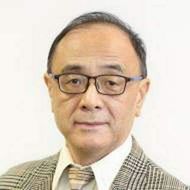Heritage, CCP traditions & liberalism: Three fundamentals of China's new social contract

We are in a time of a lack of consensus. The old social contract is crumbling because of the sea change of a century. To explore a new social contract under new conditions is a challenge now faced by every country.
China's new social contract, should it ultimately take shape, will necessarily draw from three sources: the Chinese historical and cultural heritage, the tradition of the Communist Party, and the ideas of liberalism. There are good parts in all three that should be taken in, as well as superfluous bits that should be rejected. To sift out the best aspects of all three and discard the rest, we need to have a deep understanding of all three sources.
Ancient Chinese heritage
Familial relationship
The social contract in the old Chinese tradition did not come with assumptions about the so-called "state of nature" as liberalism does. Even at the dawn of humanity, people were living and working together within a familial-tribal set-up, each holding separate roles. In fact, China's political history was informed by the familial paradigm. The sovereign and his subjects, the father and his sons, the young and the old, the senior and the junior - each was supposed to know their place and fulfil their respective duties. The contractual relationship between the bureaucracy and the people was such that each side was the "parents" to the other. The common folk thought of the government in terms of "paternal/maternal officials" to them, while government officials called the common folk their "fathers and mothers" on whom they depended for sustenance. Confucianism came with a whole set of ethics to place limits on the behaviour of the rulers. Rulers were generally expected to function in awe of the Mandate of Heaven and the collective hearts of the people.
However, this was just a kind of cultural contract, borne more out of the conscience of the rulers themselves than by any legal or systemic mechanism. It did not have adequate checks and balances. Its strength was chiefly embodied in the tradition of people-orientedness, according to which the government made decisions for the people and upheld justice and fairness for them, all in exchange for their obedience and allegiance. Here's a contemporary case in point: the Chinese Communist Party (CCP) puts in great effort to eliminate poverty even though it has no need for the people's votes. The motivation here is mainly a sense of responsibility generated from conviction - that is to say, the ruler's commitment to his zimin (子民, i.e., the people thought of as his children). According to Confucianism, the people had the right to overthrow rulers who did not abide by the contract - or, as people used to say, "rebellion is justified".
A hundred years ago, after lecturing across China, Bertrand Russell concluded that there were three weaknesses in the character of the Chinese people: cowardice, avarice and callousness. What were these if not the result of having to struggle to stay alive under repression for millennia?
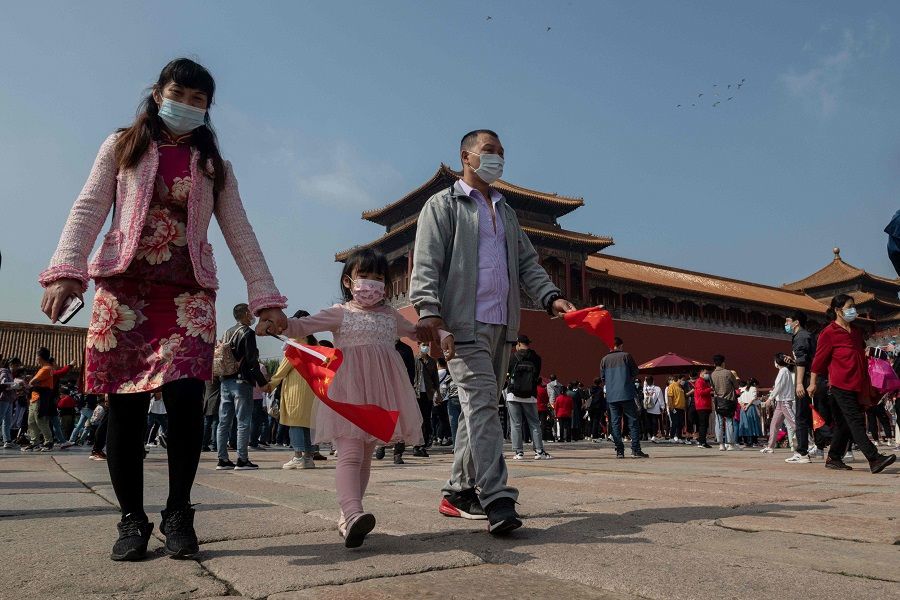
A clear separation from business
Another major feature was the separation of politics from business. In China's traditional culture, the bureaucracy loomed in crushing domination over the merchants. That this is still the case today is clear from the Ant Group and Jack Ma incident. Historically, the values of the bureaucracy and of the merchants were two separate systems. In the ongoing process of modernisation, the relatively independent value system and political culture of officialdom have disintegrated, so there is a real danger of power being traded for money. The imperial court of the past only focused on social stability. The modern government, however, also has to drive economic and social development, and thus it needs to have dealings with the business world. If corruption is to be avoided, if the kind of government-business relations described by Xi Jinping as "close but clean" are to be forged, the tradition of keeping politics and business apart is an advantage China has.
But no citizens
In any case, the flaws of the traditional contract are very obvious. With no effective constraints in place, rulers often defaulted. Throughout Chinese history, there has been a seemingly endless succession of sovereigns who were tyrannical, fatuous, or who led the state to its demise. Equally common were courtiers who wielded too much power, who served as jesters, or who were deviously deceitful. Thanks to fatally oppressive bureaucratic power and the excesses of official-centrism, it became the norm to keep the peace by literally letting heads roll. Weighed down by the bureaucracy, the common folk gradually lost their fiery moral fibre, which was then replaced by a growing slavishness. The hot-blooded assassin Jing Ke turned into Lu Xun's invertebrate Ah Q.* Imperial China had plebeians, zimin and disobedient subjects, but no citizens. A hundred years ago, after lecturing across China, Bertrand Russell concluded that there were three weaknesses in the character of the Chinese people: cowardice, avarice and callousness. What were these if not the result of having to struggle to stay alive under repression for millennia?
... the CCP's systemic total power has far exceeded that of any dynasty in history.
The tradition of the Communist Party
Serve the people
In the hands of the Communist Party, the tradition of people-orientedness underwent further development. With elements of democracy, equality and unity for progress, Mao Zedong injected a dose of modernity into tradition and pushed it to the extreme. He incited the masses to rise up in rebellion, drove the cadres into serving in the countryside or factories, had them "eat, live and labour together" with the poor and lower-middle peasants, and made them "serve the people" (the motto of every Communist Party member). What he advocated was a close connection to the masses (massline), a wholly masses-oriented approach, as well as criticism and self-criticism.
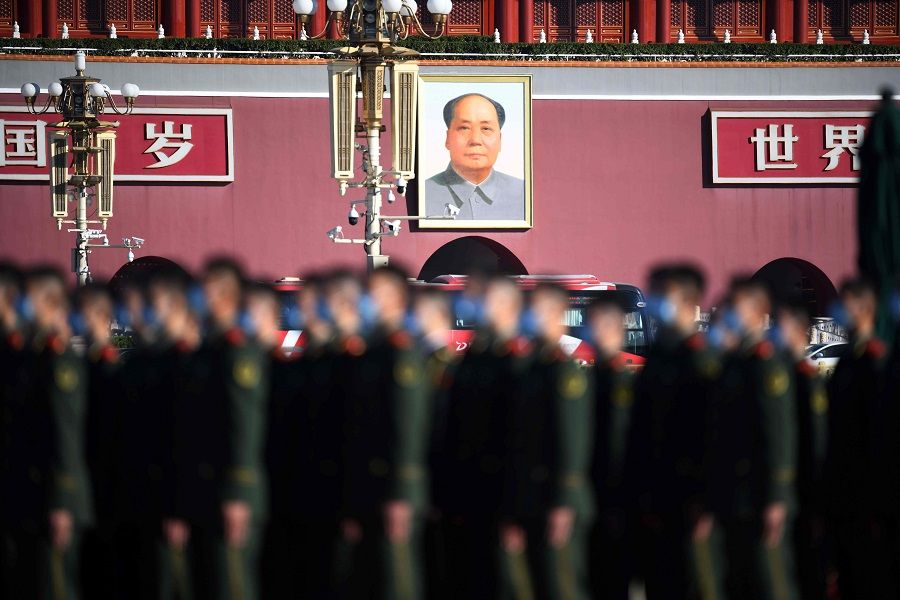
In post-Maoist China, hierarchism at the grassroots level has been much less stringent than in Japan or South Korea. At the governmental level however, thanks to their democratic systems, hierarchical thinking at the governmental level has been greatly attenuated in the latter two countries. In Chinese officialdom, however, there is still an emphasis on hierarchical status everywhere you turn, because there is no democracy of universal suffrage.
Even so, Hu Jintao explicitly said that national development had to be "people-oriented". Later came Xi Jinping's declaration: "To realise people's aspiration for a better life is our mission." In our time, we see China's plan for large-scale poverty elimination, the labour-intensive programme of targeted poverty alleviation, the cadres going to the rural areas to be posted in grassroots units and to provide assistance on the ground. In all the world today, only the CCP has accomplished all these.
Total power
Having said that, the CCP's systemic total power has far exceeded that of any dynasty in history. While this boosts the capabilities of the state, it has also brought about a series of problems, such as the proliferation of official-centrism throughout the entire society, as well as the retrogressive rise of personality cult. Even when corruption is put under systemic constraints, there is no way to remove the power that is at its roots.
The core of Marxism is a theory of class struggle. It embraces the idea of the proletarian dictatorship. The CCP has therefore never attempted to forge a social contract. The need to do so was felt only after the Chinese economic reform began. Propositions like the "Three Represents", "harmonious society", "building a community of shared destiny" were consequently put forth, all in the hope of arriving at a common understanding for the entire Chinese populace through "socialism with Chinese characteristics". While much progress has been made in this aspect, none of these propositions have come close to becoming anything like a true social contract. With the return to orthodoxy as seen in recent years, the theory of class struggle is seriously interfering with efforts to form a common understanding for all.
Any country that seeks to be modernised has no choice but to accept some of these basic ideas and adopt some of the liberalists' "progressive systems". No country in the world can be an exception, not even the People's Republic of China.
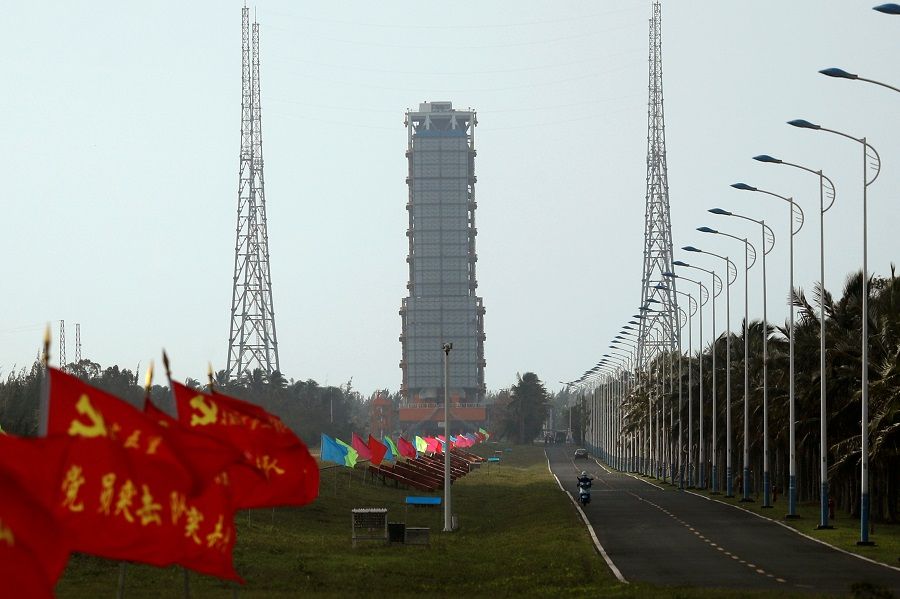
Return to orthodoxy
The "Three Represents" is no match for Marxist orthodoxy. The leftists are quoting from the canon, claiming that private-owned enterprises have fulfilled their purpose in history and so it is time to eliminate private ownership once again. Private business owners quip: "Needing us was a choice you were forced to make, but doing away with us is your sacred mission." Unfortunately, no social contract is possible without the participation of all classes.
Marxism-Leninism, especially the "philosophy of struggle" as espoused by Mao Zedong, fills the minds of the CCP with "us-versus-them" thinking, such that the party is obsessed with highlighting politics and sees everything in black and white. One of the major hallmarks of CCP politics is that everyone is expected to draw a line and fall in. It's "you're either with us or against us". If someone on one's side is "shaky in their position" (straying into a grey area, for instance), they are mercilessly lumped in with the opposing camp. For example, it seems that there are now only two kinds of Chinese-language media outside of China now, namely the anti-Communists and the "bootlickers" to the Communists. There is hardly any voice of objectivity and rationality to be heard. This is the result of the "grand external propaganda push" driven by "us-vs-them" thinking, which has drawn the sarcastic label of "sharp power".
The international image of Communist countries has always been irredeemably blighted by intolerance, the suppression of human nature according to "class nature" or "party nature", disregard for human rights, deprivation of liberty and so on. Part of these may be chalked up to either unfair smearing or historical legacies. Nevertheless, the fact remains that the ideological and institutional basis that gave rise to such negative aspects in reality still exist. They have never been touched fundamentally by reforms at all.
The ideas of liberalism
The basic ideas of liberalism, such as human rights, freedom, democracy, republicanism, the rule of law and scientificity, are closely linked to modernisation. Any country that seeks to be modernised has no choice but to accept some of these basic ideas and adopt some of the liberalists' "progressive systems". No country in the world can be an exception, not even the People's Republic of China.
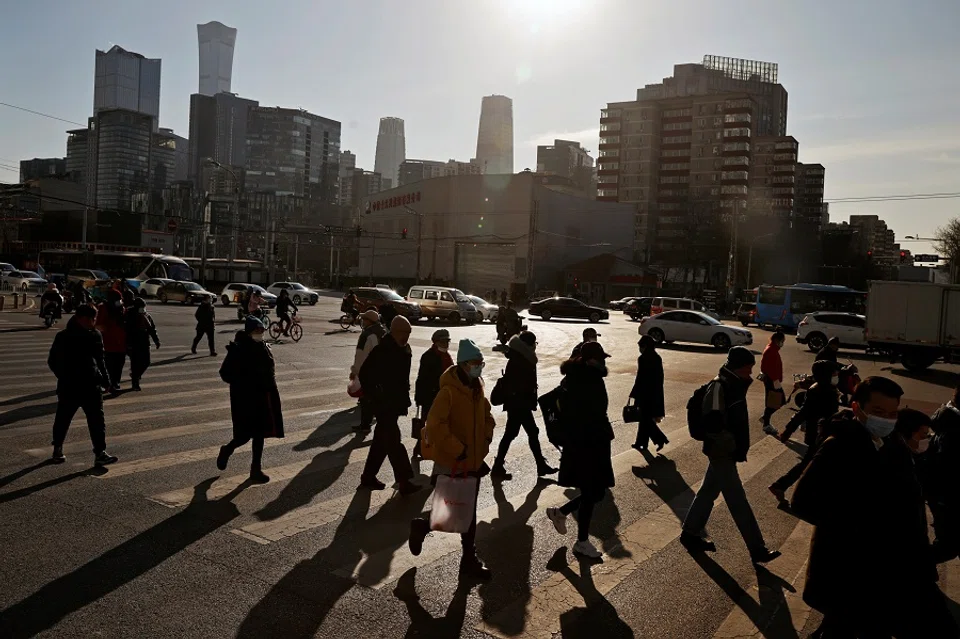
Having said that, some of the preconditions for liberalism are disappearing, resulting in a loss of consensus, social fissures and a national governance crisis in many Western countries. Overemphasis on personal liberties and rights, coupled with the fact that opposition to authority has come into vogue, renders the government ineffectual. The homeless vagrants in places like Seattle or San Francisco are a case in point. They camp everywhere, answer nature's call wherever they please, litter, use narcotics, and commit crimes. They make a horrible mess of entire city blocks, causing their deterioration. Yet, given the political correctness of human rights, no one can do anything about it. Residents can only helplessly watch their community rot away.
In contrast, there are numerous means available to the Chinese system for dealing with such a situation. The state could, for example, mobilise the resources of the entire society, dispatch whole groups of cadres and professionals to take over communities or schools, etc. Such actions have proven to be effective, even though they lie beyond the liberalist imagination.
The consequences of the governance crisis are painful. Apart from holding the record for the highest number of coronavirus infections and deaths, the US has had the largest prison population in the world for a long time. The average life expectancy of Americans has been shortening for three consecutive years. We hear bad news on TV in America every day - there's always something about shooting, crimes, racial conflicts or police brutality, or some gloomy development related to the economy or the environment.
Ted Turner, the founder of CNN said he never watched TV because it was depressing. Many American TV stations routinely tell an uplifting story or two about ordinary people at the end of the news programme, just to balance the mood a little. Compared to mainland China's "positive energy" propaganda, these are harmless feel-good narratives of no consequence. If anything, they only betray a sense of helplessness in the face of reality.
Out with the bad, and in with everything good
Informed by a common understanding shared by the entire populace, a stable, highly inclusive and positively interactive social contract will do much good for the legitimacy of the government and the long-term peace and order of the country. It is something worth working towards for China. Such a contract should encompass the strengths of the three sources outlined above, and also strive to avoid their shortcomings.
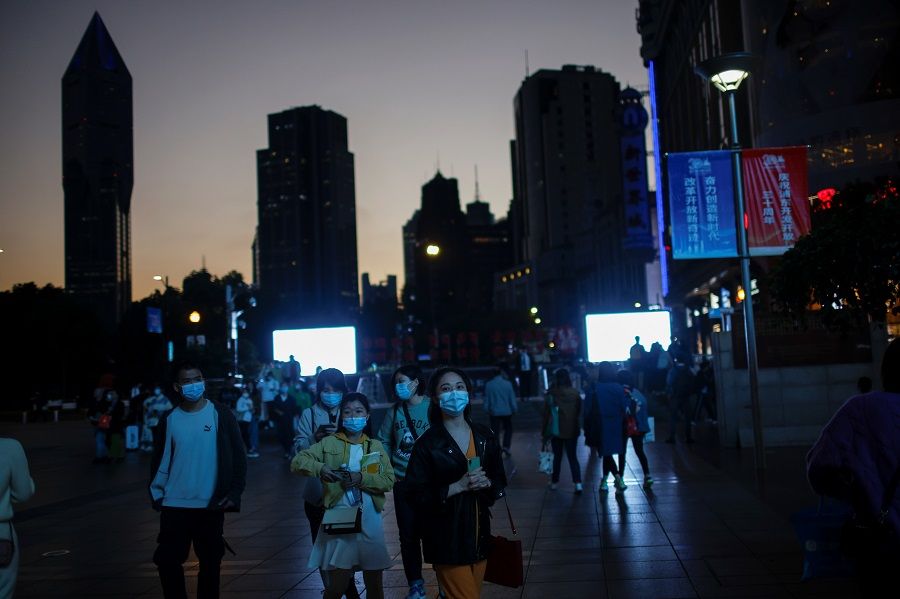
By strengths, I mean the tradition of people-orientedness, the spirit of "serving the people", the strong capacity for (and commitment towards) overall governance on the part of the state, as well as the values of democracy, freedom, equality and inclusiveness. All these should feed into the basis of common understanding for the new contract. Class struggle is something that stands in opposition to a social contract. It was useful for waging a revolution, but it is extremely destructive in a time that calls for constructiveness. Given the spectacular capabilities of the state now, there is no social conflict in China that is beyond mediation and can only come to life-and-death class struggle.
One of my earliest impressions about the US was that even their beggars had quite an air of confidence to them and felt rather good about themselves. They would never bow down in a servile manner and put up a pitiful appearance as is second nature for beggars in China.
The blowing winds of change across the world are generally calling for a state in which individualistic causes have to be downplayed, while the interests of the collective are to be underscored. However, the reverse is true in China. In both the old Chinese heritage and the tradition of the Communist Party, top-down power is too overbearing and tends to expand endlessly, crushing the breath out of those below. There are no adequate forces in the Chinese tradition to restrain rulers from doing evil, whereas liberalism has a huge advantage when it comes to reining them in. This advantage ought to be incorporated.
The case of civil society in China, for example, is telling. Civil society contributes to the healthy development of personality, social self-government and moral improvement. It is also the source of innovation and the spirit of entrepreneurship. Unfortunately, the CCP sees it only as a cradle of instability and opposition. Unviolated personal space guarantees social vitality. Such space has come into being naturally after the Chinese economic reform, but in the absence of contractual protection, it can be taken away at any time by those in power. Such insecurity is detrimental to economic development, not to mention extremely harmful to the health of personality.
One of my earliest impressions about the US was that even their beggars had quite an air of confidence to them and felt rather good about themselves. They would never bow down in a servile manner and put up a pitiful appearance as is second nature for beggars in China. Such an impressive quality is what is absent in the Chinese tradition.
*Jing Ke was an assassin of the late Warring States period who attempted to kill Ying Zheng, king of Qin state, who eventually became Qin Shi Huang, China's first emperor (reigned from 221 BC to 210 BC).
Chinese author Lu Xun wrote the novella The True Story of Ah Q in 1921. The story centres around the peasant Ah Q who had little education and held odd jobs. Lu wanted to expose the faults of Chinese national character through Ah Q's way of dealing with defeats and humiliation in life.
Related: Why East Asia has performed well in containing Covid-19 | Liberalism and globalisation serves the elites; the world needs a return to the nation state | The return of Mao-era practices: New threat to China's political and economic modernisation | With Ant Group's record $34.5 billion IPO suspended, what happens next?
